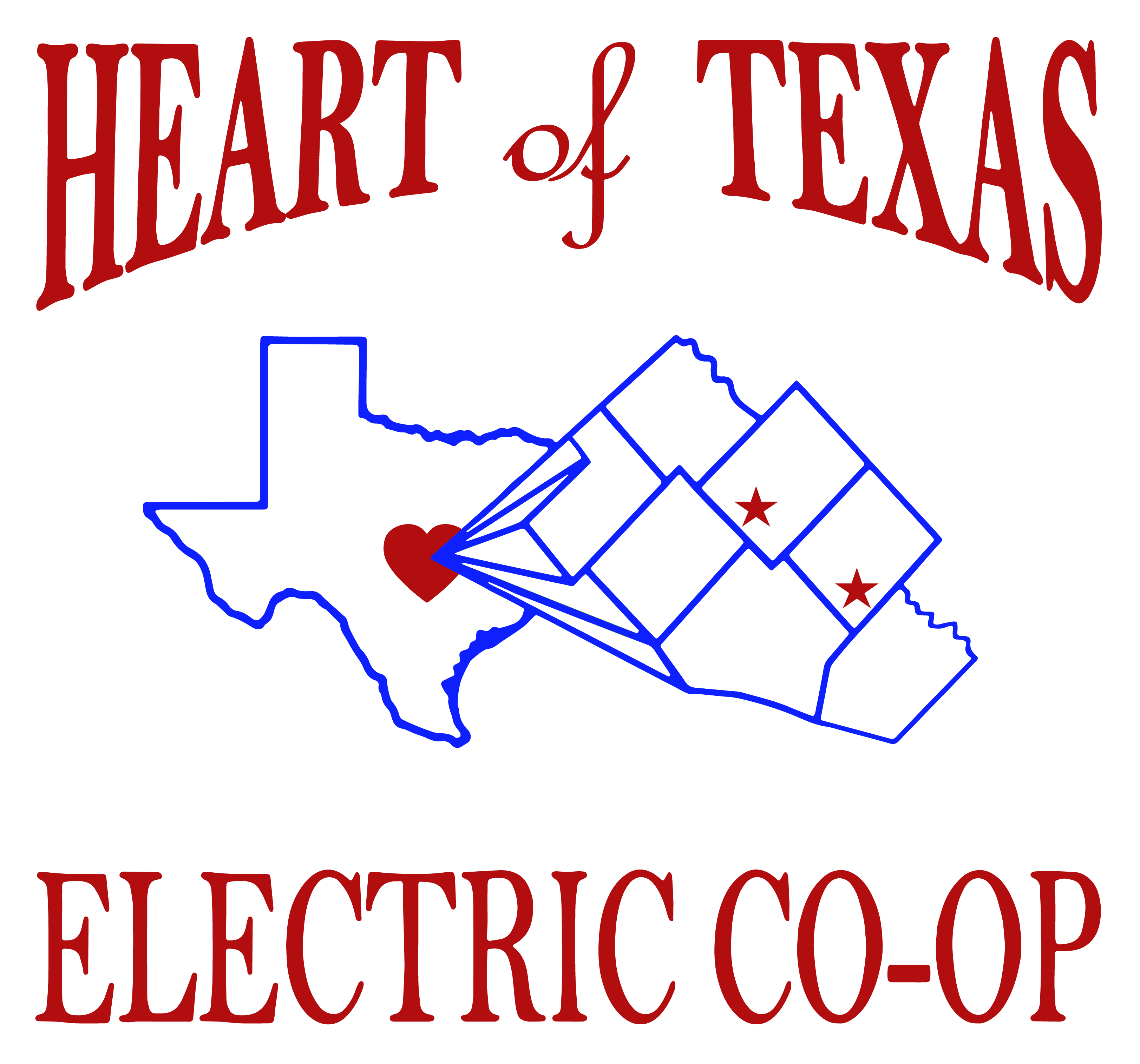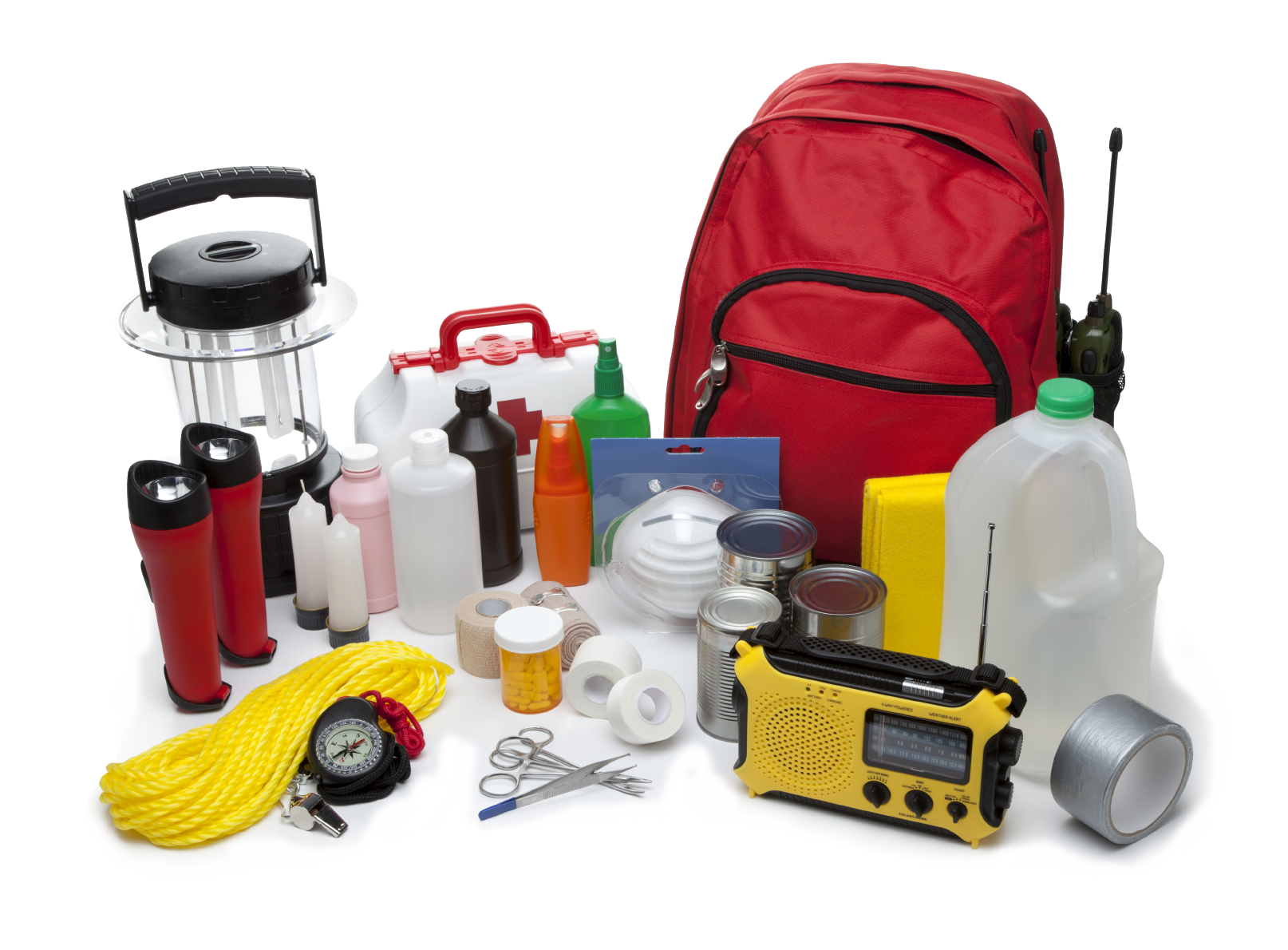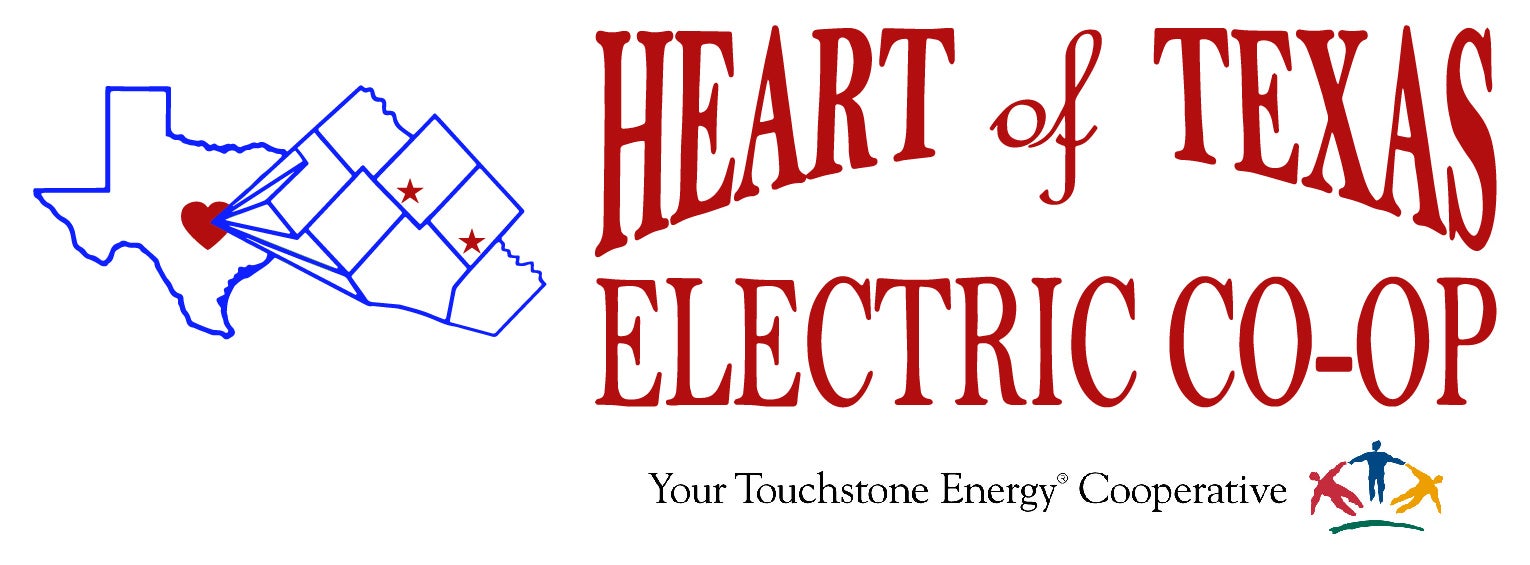Power outages are an inconvenient disruption, but most are unavoidable. Heart of Texas Electric Cooperative's crews work hard to restore power following an outage, though in the case of some large-scale outage events or extreme storms, it can be hard to determine when your lights may be coming back on. It helps to prepare ahead of time for these events so you can successfully ride out the storm, even without a generator.
What's the best way to be prepared? We're here to help with the following tips:
-
Keep a 3-to-5-day supply of drinking water in plastic bottles. Plan on at least 1 gallon of water per person, per day, plus extra for pets.
-
Store a manual can opener with enough nonperishable foods for 3 to 5 days - Canned meats, tuna fish, and peanut butter are good foods to store.
-
Keep plenty of pet food on-hand for any animals in your home.
-
Conserve water by using paper plates and plastic utensils.
-
Invest in a camp stove or grill for outdoor cooking.
-
Have a portable, battery-powered radio and alarm clock.
-
Plan where to meet and how to communicate with family members if separated.
-
Keep essential family member contact information near your phone, in your wallet, and in your glove compartment.
-
Keep plenty of gas in your car.
-
Keep extra batteries, matches, propane, charcoal and firewood.
-
Have battery packs on hand to keep cell phones charged.
-
Coordinate with neighbors for care of the elderly and disabled living alone.
-
Maintain a supply of prescriptions, nonprescription drugs, vitamins and special dietary foods.
-
Playing cards, books, drawing and writing supplies, and board games help pass the time. Use your smartphone to record a storm documentary with your family.
-
Keep sanitary and personal hygiene supplies replenished. Premoistened cleansing towelettes are useful and help conserve water.
-
Use plastic trash bags and ties for garbage.
-
Put first-aid kits in your home and car.
-
Make sure you have cold weather clothing, winter weather gear, blankets and sleeping bags.
-
Use flashlights and other battery-operated lighting instead of candles.
-
Keep fire extinguishers fully charged.
-
Fill your bathtub with water for bathroom use before the storm (if you have a well).

After an emergency, you may need to survive on your own for several days. Being prepared means having your own food, water, and other supplies to last for several days. A disaster supplies kit is a collection of basic items your household may need in the event of an emergency.

Extra batteries for the flashlight are also a good idea. If your power is out and you have no way to charge your phone, you might need to rely on a flashlight to get around at night.
A whistle can help you signal for help if you are stranded and need search and rescue to hear you.
Depending on the emergency, you may need a mask to help protect you against contaminated air.
If you need to be evacuated but have no power or access to the internet, you may need to rely on a paper map to find your way to safety.
Your emergency kit is probably made up of canned food, which lasts for a long time. If you don’t have power, you’ll need a way to open these cans.
A radio will help you receive updates on the disaster and any known safety risks.
Disasters can be stressful. If you have fun games or activities that your children can do when the power is out, this can help them cope with the stress.
Conditions during and after a disaster can vary dramatically. You may need to provide immediate care to an injured family member.
Your pet is a member of your family. You will want to have enough of their supplies to last several days, as well as a favorite toy to comfort them.
These tools can come in handy if you need to turn off utilities. Visit ready.gov/safety-skills to discover more valuable skills that can be useful in emergency situations.
While it is important to have these supplies at home, you should also consider having a smaller emergency kit stored in your car or ready to grab if you are evacuated from your home and need to leave quickly.
